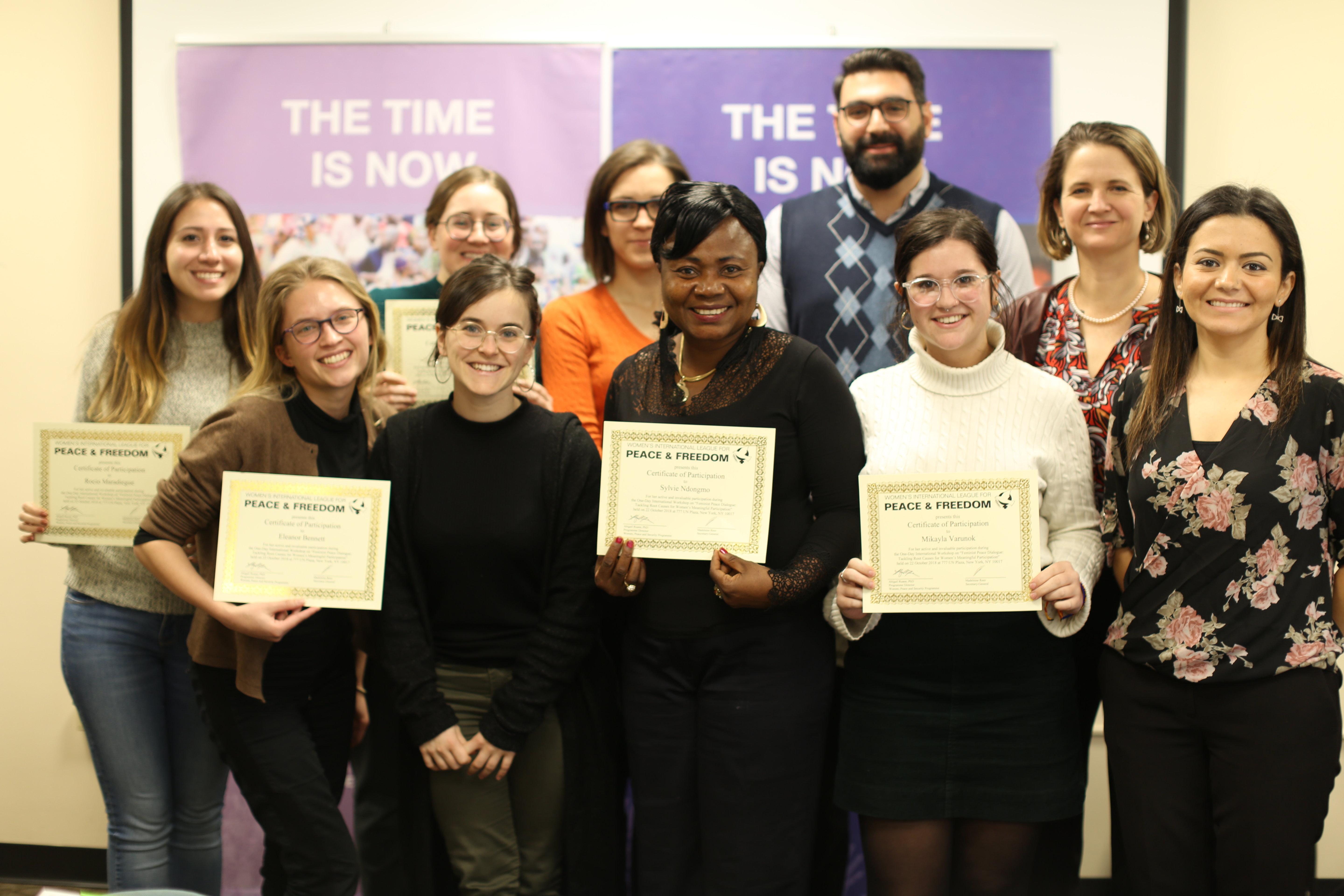Local-to-Global Mobilising: Year in Review
By Mikayla Varunok, United Nations Monitor
Participants of WILPF's Internal Workshop titled, "Feminist Peace Dialogue: Tackling Root causes for Women's Meaningful Participation" on 22 October 2018. (Photo: Nathaniel Hamlin)
In 2018, WILPF amplified the voices of grassroots women peace activists across the UN System, as well as supported their work on the local level. Together with activists in the WILPF network of over 39 different countries, we called for concrete action on a Feminist Agenda for Peace based on women’s meaningful participation, disarmament and gender analysis.
At various international forums, we worked with local activists to demand a transformation towards bottom-up, inclusive and gender-aware action across the UN System. During the 62nd Session of the Commission on the Status of Women (CSW62), our partners brought attention to the impact of occupation, war and violence on women in Palestine, Syria, Nigeria, as well as historical challenges to inclusivity in the US, and finally the need to ensure an inclusive peace process in the Koreas. During the 2018 High-Level Political Forum (HLPF 2018), WILPF launched the #WomenLead2030 Campaign to mobilise the recognition of local women’s important work. In October, WILPF supported global movement building efforts on means to tackle the root causes of violence for women’s meaningful participation and worked to channel these experiences into international decision-making.
On the national level, WILPF supported Women, Peace and Security localisation work and worked to strengthen and support a feminist peace movement on the local level. In August 2018, we mobilised 250 activists who came together in Accra, Ghana for WILPF’s Feminist Peace Movement in Africa Forum and 32nd Triennial International Congress to facilitate exchange and learning across the innovative and powerful nonviolent work of women leaders in Africa. In Colombia, we worked with local activists to bring recognition to the ongoing challenges in the implementation of the Peace Agreement in a way that contributes to sustainable and long-lasting peace based on disarmament and gender equality. In Afghanistan, we engaged with women to support their innovative work to address violent masculinities for effective WPS implementation. In Nigeria, Cameroon and the DRC, we supported local work to create awareness and drive the implementation of UNSCR1325 National Action Plans, including around preventing and addressing electoral violence.
Despite major challenges, including rising attacks and restricted funding to women human rights defenders and peace activists, WILPF continued to create space in 2018 for leaders in our grassroots networks to mobilise, strategise and take action.
We are looking forward to 2019 and its upcoming opportunities to strengthen local action for feminist and sustainable peace.
Read more about WILPF’s engagement at the 62nd Session of the Commision on the Status of Women here>>
Read more information about WILPF’s engagement at the 2018 High-Level Political Forum here>>
Read more about WILPF’s engagement during the 18th Anniversary of the Women, Peace and Security Agenda here>>
Read more about WILPF’s Feminist Peace Forum in Africa Report here>>

